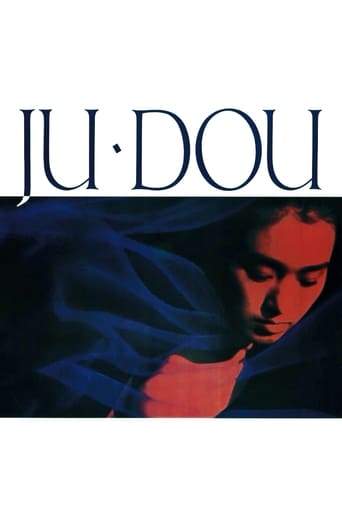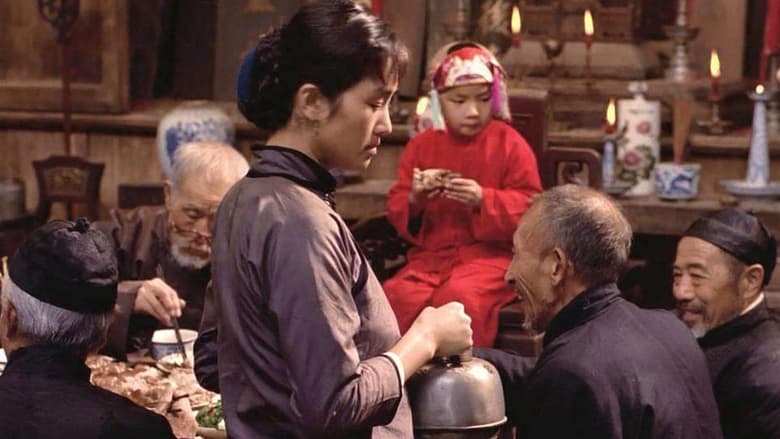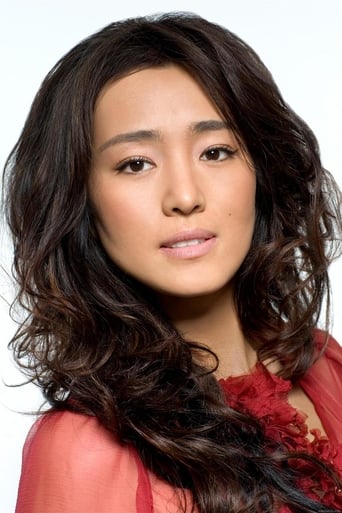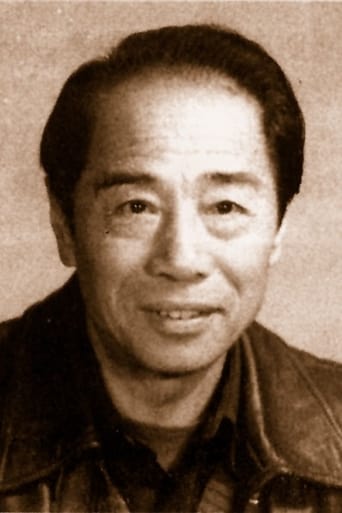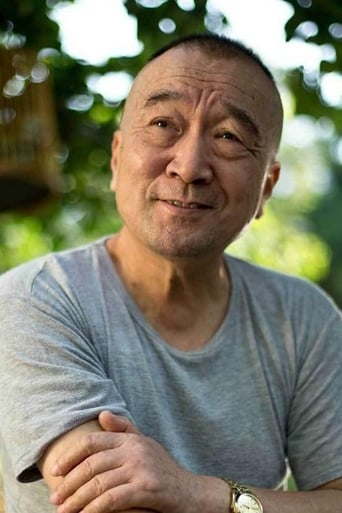Ju Dou (1990)
A woman married to the brutal and infertile owner of a dye mill in rural China conceives a boy with her husband's nephew but is forced to raise her son as her husband's heir without revealing his parentage in this circular tragedy. Filmed in glowing technicolour, this tale of romantic and familial love in the face of unbreakable tradition is more universal than its setting.
Watch Trailer
Cast


Similar titles
Reviews
One of my all time favorites.
Highly Overrated But Still Good
It's fun, it's light, [but] it has a hard time when its tries to get heavy.
As somebody who had not heard any of this before, it became a curious phenomenon to sit and watch a film and slowly have the realities begin to click into place.
8 STARS - No Need To Understand Chinese - Ju Dou You don't need to understand a word of Chinese, even if you view this film in its native language without English subtitles. This story of a suffering Chinese wife in 1920s China who seeks sexual gratification outside of her impotent husband is a straightforward tale of passion. It is told in magnificent fashion via one beautiful shot after another by master Zhang Yimou. Gong Li, as always, is incomparable. Zhang uses the same formula with her that Carlo Ponti used with Sophia Loren, the large-breasted star of Italy, who was a great actress trapped in a super-sexy body. In Two Women, Ponti did everything he could to downplay Loren's natural assets: plain clothes, dirt on her face, and mundane surroundings. Zhang does the same exact thing with Gong Li and is successful. Ju Dou is not the best work of Zhang, but that is like saying The Birds or Psycho was not the best work of Hitchcock. This film is gorgeous and shot to perfection. Millions of women will identify with it. Highly recommended.
Yang T. returns from selling silk for his adoptive uncle, Yang J., who dyes fabrics to sell and is a cruel man who beats his wives to death because they fail to produce sons. His new wife, Ju Dou(Gong Li) is also abused by her husband and Yang T. sees her bruises and they soon begin an affair, Ju Dou has a child, Tianbai, and she pretends the kid is her husbands. Yang J. suffers a stroke and winds up in a wheelchair. He discovers his wife's deception and figures out that the boy is not his. He tries to kill the boy. The couple stop him and hang him in a barrel from the ceiling overnight. Tianbai grows up to be an angry boy and the rumors surrounding his mother's infidelity turn him vindictive. Karma has a way of paying people back and Ju Dou is no exception. Gong Li is beautiful in the title role and the ending will stay with you for a long time.
Readers send me recommendations of films that use architecture cinematically. Water, smoke, fire (fireworks), are the usual supplements to built space. To that I've recently added cloth, based on a reviewing of "Brother Sun." This was recommended.Its an early, intimate film from the man who later brought us epics that sometimes work with space: flying leaves, smoke, fabric, knives. He's quite committed to cinematic architecture, space. I appreciate it. In this case, the project is small, with few aspirations. The story is a familiar one (two men, a woman and a shared child), and really quite ordinary except that the acting is good. The real center of this is the house.Its a combination of residence for the two men and woman, and a business where the three dye fabric and hang it in long bolts to dry. The place is wonderfully, gently photographed in places, and that is to be expected. The way the thing is staged is very typical of Chinese films of the era: every shot is carefully arranged with the surrounding space emphasized with color, planes and light. Its not dynamic, but very effective. I include this in my list of "folding' effects that bring the viewer into the world of the film. Making space, always impinges on our space.But there's another effect at work here. I like it when this filmmaker uses the environment as indication. This is also typically Chinese, but usually has to do with political events or natural disasters, of some such. Here, when the cousin and virgin wife do have their first sex, a long newly strip of fabric, perhaps 35 feet long, makes a waterfall of red collapse into a pool of red dye. Its a remarkably powerful image capturing blood, a sort of gravity of sex (both senses), indeed an inevitability. Its the entire tragedy in one scene, the human copulation just off screen.Later, this pool would swallow both the men, one after another. The transgressor will end up literally in this pool of red, with the very same inevitable, continuing drape falling over him. Its not the cleverest or most subtle working of architectural space into cloth and thence into nearly a character, one that indicates and has agency, both as the force that starts the tragedy and ends it.Its worth it. See it before you see that later epic excesses.Ted's Evaluation -- 3 of 3: Worth watching.
The title character, a peasant sold as a concubine to a cruel old man, is played by the beautiful Gong Li, one of the great actresses of our time who followed this brilliant work with spectacular performances in The Story of Qiu Ju (1991), Raise the Red Lantern (1992), and Farewell, My Concubine (1993). Li Wei plays her master, Yang Jin-shan, the childless owner of a dye mill in the agrarian China of the 1920s. Li Wei's fine performance combines craftiness with iniquity reminding me a little of the late great John Huston with scruffy beard. The third character in the tragic triangle is Jin-shan's nephew, Yang Tianqing, a modest man who does most of the work in the dye mill. The pent-up intensity of Li Baotian, who plays Tianqing, recalled to me at times the work of Ben Kingsley. Ju Dou falls in love with Tianqing almost by default, and it is their ill-fated love that leads to tragedy.In some ways this visually stunning, psychologically brutal film about paternity and the old social order of China was Director Zhang Yimou's "practice" for the making two years later of his masterpiece, the afore mentioned, Raise the Red Lantern, one the greatest films ever made. The theme of patriarchal privilege is similar, and in both films Gong Li portrays a young concubine required to bear a son and heir to a cruel and ageing man of means. Even though the setting in both films is China in the twenties before the rise of Communism, both films very much annoyed the ageing leadership of Communist China and were censured (Ju Dou was actually banned), ostensibly for moral reasons, but more obviously because of the way they depicted elderly men in positions of power. Ju Dou is the lesser film only in the sense that Sirius might outshine the sun were the two stars placed side by side. Both films are masterpieces, but for me Ju Dou was difficult to watch because of the overt cruelty of the master, whereas in Raise the Red Lantern, Yimou chose to keep the more brutal aspects of the story off camera. In a sense, then, Raise the Red Lantern is the more subtle film. It is also a film of greater scope involving more characters, infused with an underlining sense of something close to black humor. (The very lighting of the lanterns was slyly amusing as it ironically pointed to the subjugation.)In Ju Dou there is virtually no humor and the emphasis is on the physical brutality of life under the patriarchal social order. Ju Dou is beaten and tortured while we learn that Jin-shan tortured his previous wives to death because of their failure to bear him an heir. The terrible irony is that it is Jin-shan who is sterile. He feels shamed in the eyes of his ancestors because the Wang line will die out with him. But a child is finally born through Ju Dou's illicit affair with Tianqing. (Note that this conjoining in effect saves Ju Dou's life.) Jin-shan thinks the infant is his son and briefly all is serenity. However, while two may live happily ever after, three will not. Notice too that now that Jin-shan has an heir, nephew Tianqing will inherit nothing.Will they kill Jin-shan? Will fortuitous events put him out of the picture?Will they find happiness? Will the boy learn the truth about his paternity? Yimou's artistry does not allow superficial resolution, you can be sure.Note the two significant turns the film takes early on. One comes after Ju Dou discovers that Tianqing has been spying on her through a peep hole as she goes about her bath. At first she is mortified, and then sees this as a chance to show him the scars from the torture she endures daily, and then she shows him her body to allure him. The other turn comes as the child pronounces his first words by calling the old man "Daddy." Instantly Jin-shan, now confined to a wooden bucket that serves as a wheelchair, divines a deep psychological plan to realize his revenge. He embraces the child as his own, hoping to turn the boy against the illicit couple.The strength of the film is in the fine acting, the beautiful sets, the gorgeous camera work, and in the unsentimental story that does not compromise or cater to saccharin or simplistic expectations. Yimou is a visual master who turns the wood gear- and donkey-driven dye mill of the 1920s into a tapestry of brilliant color and texture. Notable is the fine work that he does with the two boys who play the son at different ages. He has them remain virtually mute throughout and almost autistically cold. Indeed part of the power of this film comes from the depiction of the character of the son who grows up to hate who he is and acts out his hatred in murderous violence toward those around him.Zhang Yimou is one of the few directors who can bring simultaneously to the silver screen the power of an epic and the subtlety of a character study. His films are more beautiful than the most lavish Hollywood productions and as artistically satisfying as the best in world cinema. The only weakness in the film is perhaps the ending which is played like a Greek tragedy for cathartic effect. One senses that Yimou and co-director Yang Fengliang in choosing the terminus were not entirely sure how this tale should end and took what might be seen as an easy way out.(Note: Over 500 of my movie reviews are now available in my book "Cut to the Chaise Lounge or I Can't Believe I Swallowed the Remote!" Get it at Amazon!)

